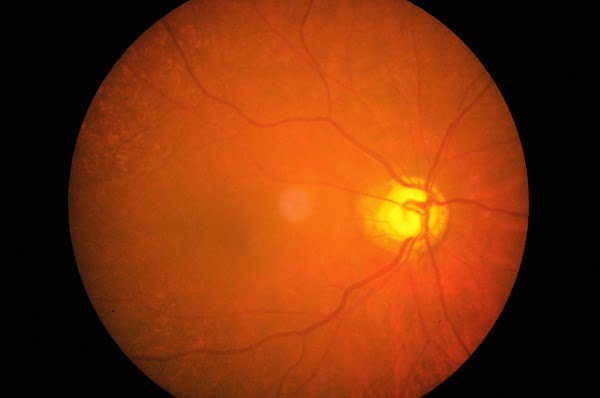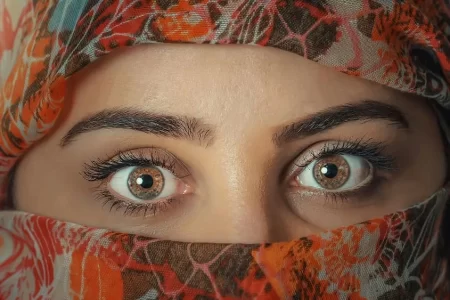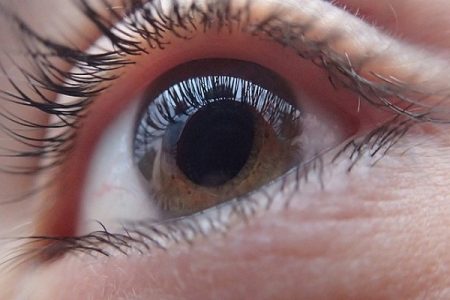Anti–Vascular Endothelial Growth Factor Therapy (Anti VEGF Therapy) for Eye Disorders and Cancers
- Updated on: Jun 10, 2024
- 4 min Read
- Published on Apr 20, 2021

What is anti-vascular endothelial growth factor therapy
Known as anti VEGF therapy or Anti-VEGF medication, this therapy involves the use of medication which facilitates the blockage of vascular endothelial growth factor. The therapy is basically taken into account for certain cancers (such as lung cancer, breast cancer, colorectal cancer) and for age-related macular degeneration.
In the year 1989, the isolation and cloning of vascular endothelial growth factor-A (VEGFA) was a milestone in understanding the formation of new blood vessels from the pre-existing vessels i.e. the concept of angiogenesis became clear. This major advancement laid foundations of improved treatments for ophthalmic diseases, vascular related diseases and certain cancers as well.
What is anti-vascular endothelial growth factor (anti-VEGF)?
Vascular Endothelial Growth Factor is also known as Vascular Permeability Growth Factor because it is vasodilator and increases microvascular permeability. It is a protein produced by cells which stimulates the formation of new blood vessels.
To be precise, VEGF is a sub-family of growth factors which forms new blood vessels during embryonic development or muscle injury.
Although, if VEGF is over-expressed, it can contribute to diseases like certain cancers or vascular disease in the retina of the eye and other parts of the body.
What are VEGF receptors (VEGFR)?
VEGF receptors are receptors for vascular endothelial growth factor. There are three main subtypes of VEGFR, numbered 1, 2 and 3.
Vascular Endothelial Growth Factor Receptors (VEGFRs) are tyrosine kinase receptors that are responsible for binding with VEGF to initiate signal cascades that stimulate angiogenesis among other effects. VEGFRs convey signals to other signal transduction effectors through autophosphorylation of specific residues in its structure.
Classification of VEGF family
VEGF family is classified into:
VEGF-A
These growth factors function for angiogenesis and vasodilation.
VEGF-B
This is appropriate for embryonic angiogenesis.
VEGF-C
Formation of lymphatic vessels from pre-existing lymphatic vessels i.e lymphangiogenesis is its major function.
VEGF-D
It is required for the development of lymphatic vasculature surrounding lung bronchioles.
PIGF Or Placenta Growth Factor (PGF)
Also known as PGF (placenta growth factor), it is important for both vasculogenesis and angiogenesis specially during ischemia, inflammation, wound healing, cancer, etc.
In mid 90s, scientists had identified monoclonal antibodies that could target and neutralize VEGF-A and inhibit tumor growth in preclinical studies termed to be anti-VEGF drugs (anti VEGF antibody). These major researches brought forward the advancements in drug discovery for various diseases such as Avastin for the first line treatment of metastatic colorectal cancer, Nexavar in various cancers, Mucagen, Eylea and Lucentis for Age-related Macular Degeneration.
These anti-VEGF agents mark as great clinical improvements as drugs and reveal innovative anti-VEGF therapy in targeting cancer and ophthalmology.
What are VEGF-inhibitors?
VEGF-inhibitors restrain the growth of blood vessels i.e. angiogenesis with the help of drugs that reduce the production of proangiogenic factors. These inhibitors show considerable benefit in patients suffering with Macular Degeneration and Cancer.
Use of VEGF-inhibitors and VEGF-drugs in ophthalmology
Macular degeneration, diabetic macular oedema or other ischemia related retinopathies have the potential to reduce the quality of life. VEGF plays a major role in the development of diabetic retinopathy and the wet form of age-related macular degeneration. Anit-VEGF therapy is also therefore important in the treatment of these diseases.
There are certain VEGF-inhibitors for example VEGI, maspin, angiopoitin, IFN-a, endostatin, prolactin, etc which suppress tumour growth for long term.
VEGF-drugs such as Avastin, Thalodomide, Cannabinoids, intraconazole, not only restrict the growth of blood vessels but can also cause regression of abnormal blood vessels in the retina and improve vision when injected directly into the vitreous humor of the eye.
Anti-VEGF therapy also involves monoclonal antibodies such as bevacizumab, antibody derivatives such as Lucentis which inhibit tyrosine kinases stimulated by VEGFs, which further reduces the tumour progressions.
Anti-VEGF treatment for Macular Degeneration
Blood vessel oedema is only reduced by a group of drugs that inhibit the protein VEGF produced by the cells.
Before the treatment, the eyes are observed through a few tests to study the state of your retina. These are:
Slit Lamp Examination
Ophthalmologists dilate the pupil and then check under the microscope to observe the changes on the retina of the eye.
Fluorescien Angiography
In this test, a dye is injected in the arm of the patient which travels through the blood vessels of the retina. Meanwhile, a series of pictures are taken of the retina through special equipment which locate the areas of leaking blood vessels.
Ocular Coherence Tomography (0CT)
This test is predominantly used in locating the swollen macula in the eye through different images of the retina and areas around it.
Anti VEGF drugs are given as Anti VEGF injections in the eye vitreous. The Anti-VEGF injection is passed through the sclera (white portion) of the eye.
Most common Anti-VEGF injections which made the treatment of macular degeneration easier over the years are:
- Bevacizumab was the most commonly used anti-VEGF each year since its introduction in 2009
- Ranibizumab use declined rapidly after it was the most common antiVEGF in 2008 (86%)
- Pegaptanib was used only until 2009 and aflibercept only during 2013.
- Bevacizumab as well as pegaptanib sodium for neovascular AMD have demonstrated clinical benefits (visual acuity improvement and resolution of edema), suggesting possible synergistic effects, although, it is still under clinical trials.
Anti-VEGF treatment for cancers – breast cancer, lung cancer, colorectal cancer
Vascular endothelial growth factor (VEGF) contributes to several pathological processes and is a popular target in research for therapies associated with certain illnesses related to cancers.
Cancer growth is stimulated by VEGF, therefore, researchers have made several attempts to decrease its expression and prevent angiogenesis and tumor growth. If the blood supply is reduced, the tumor is starved to death. Two of the most popular drugs that have been successful at slowing the progression of disease stimulated by VEGF are monoclonal antibodies bevacizumab (Avastin) and ranibizumab (Lucentis). Others are such as Lapatinib (Tykerb), Sorafenib (Nexavar), Pazopanib, Axitinib, etc.
In randomized phase III trials, two anti-vascular endothelial growth factor (VEGF) approaches have shown survival benefit in patients with metastatic cancer. In one approach, the addition of bevacizumab, which is a VEGF-specific antibody showed an improved overall survival in colorectal and lung cancer patients and progression-free survival in breast cancer patients. In the second approach, multitargeted tyrosine kinase inhibitors that block VEGF receptor and other kinases in both endothelial and cancer cells, demonstrated survival benefit in renal-cell-carcinoma patients.
There are contrasting results that raise important questions about the use of anti-VEGF agents in clinical practice for cancers.
Side effects of Anti-VEGF medications/therapy
Not in all cases, but sometimes the drugs used during the Anti-VEGF treatment can cause a few problems to the patient:
- Increased blood pressure after the treatment with VEGF inhibitors
- Bleeding or retinal detachment can sometimes occur due to promotion of endothelial cell survival and its inhibition may decrease the capacity for renewal of damaged cells.
- Sometimes, the drugs can also cause fatigue, hypertension, itchy skin, diarrhea, etc in rare cases.













1 Comment
Hurrah! In the end I got a weblog from where
I can really obtain helpful information regarding my study
and knowledge.